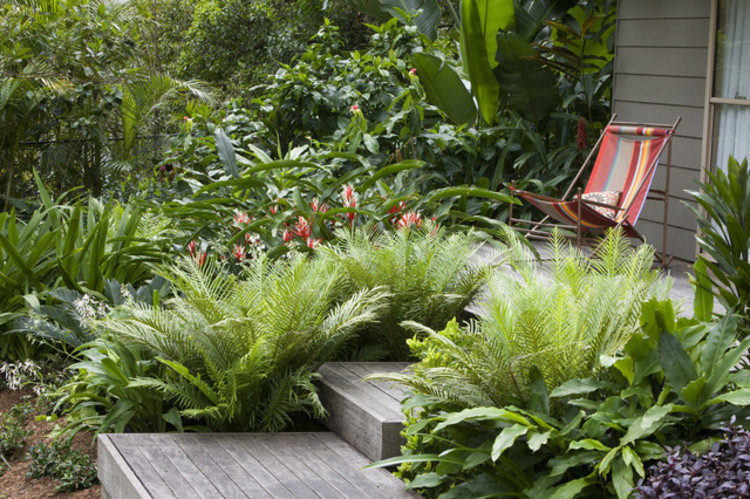
The Sunday Mail

 THE world over, the pressure on the environment has become a major talking point and has taken centre stage – our gardens are no longer just our own domain, but have been recognised as a whole unit, which can have great impact on our towns and cities.
THE world over, the pressure on the environment has become a major talking point and has taken centre stage – our gardens are no longer just our own domain, but have been recognised as a whole unit, which can have great impact on our towns and cities.
With the rapid expansion of human settlements, forests are fast disappearing. All that might be left of our forests are just our back yards; therefore, the way we do our gardening activities has become important. Gardens must be eco-friendly. Our gardens can contribute significantly to reduction of climate change, waste to the environment and the amount of energy we use.
Gardens must become sanctuaries for all living organisms such as insects, birds and small mammals. Going green means we will use less and less substances that will kill other beneficial organisms. We will rely more on these beneficial organisms for the control of pests and diseases.
There are a number of ways that one can live in harmony with nature.
Attracting bird life into your garden is an eco-friendly way to start. Place bird feeders in your garden together with bird baths. Birds will flock into your garden space and provide immense pleasure.
Birds actually feed on bad bugs in our garden. The caterpillars, locusts and sucking stink bugs are some of them. Some small mammals as much as we dislike them have a role to play in our gardens.
They help aerate the soil beneath our feet helping other soil organisms to flourish such as earthworms.
Plant selection is a requisite component of an eco-friendly environment. The way to go is to select indigenous plants originally found in that area. It doesn’t really help just to plant other indigenous plants from other areas, although overally it contributes to species conservation it doesn’t promote those species, which naturally occur in your area.
Careful selection of plants will naturally attract a greater number of species, which will benefit from the familiar generational setup.
When we grow particular indigenous plants we together as a community also halt climate change. Plants absorb harmful gases from vehicles giving us cleaner air. When there are more trees and vegetation the natural rain cycle we learnt from school occurs much more efficiently as opposed to just a concrete desert.
Convectional rainfall is likely to fall. Plants help to create microclimates in our area buffering us from temperature fluctuations. This will reduce the amount of energy we use in winter to warm our houses.
When we grow different fruits and vegetables we can grow combinations of plants for their own benefits. Growing marigolds with plants of the solanaceae family will help reduce nematode and sucking pest populations. Plant your roses together with garlic, chives with tomatoes and carrots with onions, for the same benefits.
Waste is a constant reality of our modern life. But we can choose to be eco-friendly by separating our waste into its different components. General home waste is usually organic kitchen waste, plastics and paper.
All organic waste should go onto our garden composts, whilst plastic and paper can be taken to recycling factories. You will find that your bin will become less of a hassle. Some household waste like meat and fish should be avoided on our composts as they will attract unwanted pests such as rats.
Water conservation techniques are by no means left out of this equation. The plants we select such as lawns and trees, mulching, using drip irrigation, collecting rain water and recycling household water for the garden are some of the ways to use water wisely. The more trees we plant the less water we will need to use in our gardens.
Nature friendly gardening is the way to go because gardening ceases to be just about you but about your community and a sustainable environment. Happy gardening!
Andrew is a horticulturist by profession and can be reached by email at [email protected]



